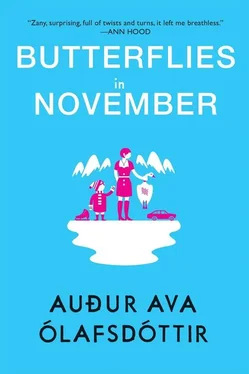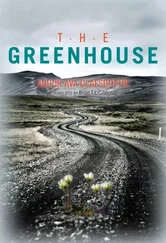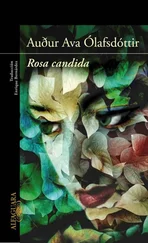As soon as it starts to rain, the outline of the world begins to blur and the horizon is supplanted by vague landmarks. Everything more or less turns to wasteland as soon as you travel beyond the road grid of the city, vast expanses of black sand and black lava fields, with the black ocean not far beyond and the black sky above. At times like this it’s good to have objectives. At the moment, mine consist in keeping my foot pressed moderately hard on the pedal, sticking to the right-hand side of the road, and not straying beyond the striped lines dividing my lane to the right and left. No need to make any decisions about what comes next, I just have to stick to the legal speed limit and move into the future that advances towards us as naturally as the next petrol station, as naturally as finding one’s future husband leaning nonchalantly against the railings of a bridge — these things happen. It is no small feat for a woman to have to stick to the right-hand side of the road; that’s where reason reigns, not the heart.
For the moment, my focus is fixed on the reflecting posts on the side of the road and the glow of the red rear lights of the old jeep towing a horse trailer in front of me, without, however, driving too close, in case some splashes of mud mar my vision. We seem to be the only two vehicles on National Highway One and that creates a kind of solidarity between us. If, for example, we were to continue heading further east and fire were to finally break through the surface of the glacier, and the sandy plains were to be flooded with water, would I and the boy and the man in the jeep, whom I don’t know from Adam, end up sharing the half-packet of oat biscuits I brought along on the same floating iceberg? Other people don’t take their summer holidays in November. At this time of the year, normal people have other things to do than renew their bond with the darkness of the land. I switch on the radio, it’s the last song before the weather forecast: If there is a road, there is a way .
The boy is totally silent in the back seat and refuses to take his hood off, despite the heat in the car. But I can see through the mirror that he is, nevertheless, alert and staring out at the road into the darkness. I mustn’t forget that mute children don’t attract attention to themselves the same way other kids do and require another kind of care.
The jeep unexpectedly skids to a halt in front of me and the trailer swerves on the drenched pavement, leaving me no choice but to do the same, to avoid a collision, so I too pull up on the side of the road and kill the engine.
The man leaps out of his jeep. After checking something under his car and giving his horse trailer a kick, I’m not surprised to see him knocking on my streaming window. It’s only once his face is right up against the glass and I can see the water trickling down his neckline from his hair that I realize it’s the guy from the pet shop, the man in the fish section, who gave me the handwritten note in cursive blue letters.
“No, there’s nothing wrong,” I tell him, “I didn’t mean to be following you, I just like to know there’s a car in front of me, I’m following the rear red lights.”
I tell him that, even though I know from experience that I’ll soon be able to see the lights of the greenhouses in the village on the other side of the mountain, I find it reassuring to know there is someone else on the road, with a comfortable gap between us, provided he has no objections.
“I don’t mean to pry or anything,” I repeat.
I feel an urge to speak to him further, to ask him something important, but the best I can come up with is to ask him for the time: what time is it? Absurd as it may seem, I suddenly felt in this precise spot, with no visible landmarks in sight, that I needed to know the time. In the rush of the moment I forget that I have a dual-time watch on the wrist of the hand holding the steering wheel. My divorce watch is blatantly visible to the man looking through the window. He turns back to his jeep without deigning to answer me, slams his door closed and drives off. The time is most definitely a quarter past five.
Visibility is practically zero and it is precisely here, at the peak of the mountain road, that my travelling companion decides he needs to pee.
He is unwilling to step out into the rain and wind, but doesn’t want to wait either. Judging by the map spread out over my lap, there are another twenty-five kilometres of lava fields and sand before we hit the next petrol station, where there will be a toilet. After that we can buy some hot dogs that have been simmering in the boiler since last weekend.
There’s no point in me raising my voice, he can’t hear me, so every time we need to talk I turn on the indicator and pull into the side of the road, stop the car and turn in my seat to allow him to see the words my lips are forming, my mouth opening and closing. I think about whether I should try to convey the information in units of distance or time.
“Hold it in, it’s another twenty-five kilometres to the next petrol station, or a fifteen-minute drive in these poor conditions.”
But what if he asks me how long twenty-five kilometres is? Or how long it takes for fifteen minutes to pass? Twenty-five kilometres is a long distance to travel with a carsick child, longer than if I were driving a weary old lady to have a hip operation, who would be grateful for the fact that she didn’t have to walk to the regional hospital over swampy fields and barbed-wire fences in a skirt and, instead, be able to sit perfectly upright in the passenger seat beside the driver, her bony knuckles wrapped around the handle of a handbag containing the bare essentials: her blood pressure medication, a box of red Opal pastilles and lipstick.
A post-coital silence can seem interminable if the woman no longer loves the man and the man no longer the woman. Time can pass just as slowly if you’re travelling with a carsick child. Silences also seem endless when you’re fourteen years old in a mixed class of thirty and you’ve been instructed to observe three minutes of silence in commiseration for some horrific event that has occurred on the other side of the ocean — that’s an unbearably long time.
But when you’re sitting beside your loved one in the car, twenty kilometres are like the flutter of a butterfly’s wings on the wall, the buzz of a fly, the fraction of a moment, no time at all.
I was twenty-nine years old and had been abroad for nine years.
First I stroked his hair, then my hand slid down his shirt.
We hadn’t known each other for long. In fact, I think it would have taken very little for me to love some other man instead. But he was giving me a lift down south and I felt good beside him in the car. Then he suddenly said:
“Will you marry me?”
Just like in the movies and without slowing down. I was going to switch topic or say thanks, but unfortunately I couldn’t. Maybe it would have been clearest just to say no thanks, but thank you for asking anyway; but the autumn sun was shining in my eyes and blinding my thoughts for a moment, so instead I unhesitatingly said yes. He looked like he was on cloud nine because he’d chanced upon those three minutes in my life in which I actually wanted to get married, and he had obviously expected me to say: “Thank you for asking anyway.”
When we drove away again, he had one hand on the steering wheel and the other wrapped tightly around my shoulder. He had to decelerate to forty to be able to kiss me properly, but with his eyes open, since there were cars coming in both directions and here and there dogs that leapt out at us barking and chasing the wheels. At one point we almost drove into a ditch. With the jagged coastline on my right and him at the wheel on the left, I couldn’t have been happier with my lot in life. We drove all evening and into the night, and then stopped at a petrol station in the fjord. When I stepped out of the car into the darkness, freshly engaged, and caught the whiff of a pile of dung in the yard in front of a neighbouring shed and faced the fluorescent lights and smell of mustard inside the store, my mood immediately started to change.
Читать дальше












